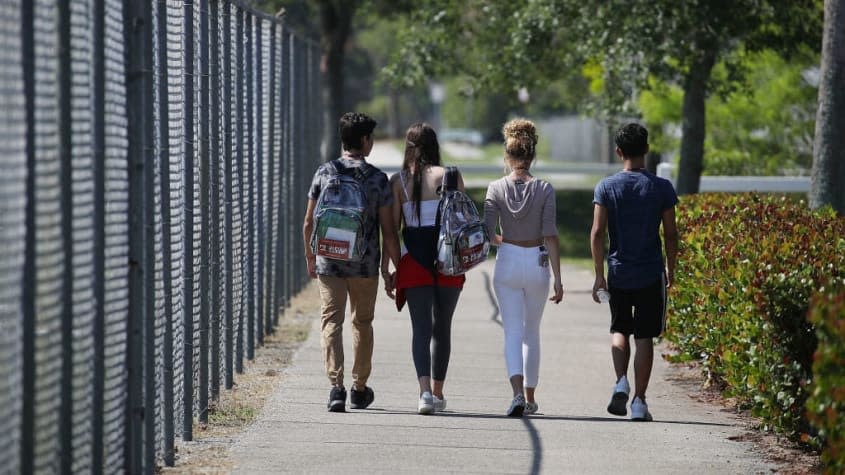CDC: Teen girls experiencing record levels of violence, mental health challenges

A stark new report from the Centers for Disease Control and Prevention released Monday says that in 2021, nearly 1 in 3 teen girls reported that they seriously considered suicide, up almost 60 percent from 2011, and roughly 20 percent reported experiencing rape or other sexual violence in the previous year, an increase of 27 percent over two years.
Almost 3 in 5 girls said they felt persistent sadness or hopelessness that interfered with their regular activities, and more girls than boys reported being bullied online or via text messaging. Teen girls across the United States are "engulfed in a growing wave of violence and trauma," the CDC said, and "these data make it clear that young people in the U.S. are collectively experiencing a level of distress that calls on us to act."
In fall 2021, the CDC surveyed more than 17,200 high school students for the Youth Risk Behavior Survey, which is conducted every two years. Kathleen Ethier, director of the CDC's Division of Adolescent and School Health, told The Washington Post there is almost certainly a link between the increase in sexual violence and the rise in girls experiencing depressive symptoms. "If you think about every 10 teen girls that you know, at least one and possibly more has been raped, and that is the highest level we've ever seen," she said. "We are really alarmed."
Researchers noted that it is unclear if girls are more aware of depressive symptoms compared to boys, or if they report them more. The survey also found that lesbian, gay, bisexual, and questioning teens experience more violence and online bullying than heterosexual teens; more than a quarter of American Indian and Alaska native teens said they seriously considered a suicide attempt; and Black and Hispanic students are more likely than white and Asian students to stay home from school due to safety concerns.
The COVID-19 pandemic hit teens hard, as they spent extended periods of time isolated at home and many lost a loved one to the virus. The CDC said schools play an important role in supporting teens as they navigate through this time of their life, and they need to offer access to good mental health services, health education, clubs, and activities. "Our research has shown that young people who feel more connected in their schools do better, both while they are adolescents and up to 20 years later," Ethier said.
You may also like
5 entertaining cartoons about Biden's State of the Union address
United Airlines flight plunged to within 800 feet of Pacific Ocean

